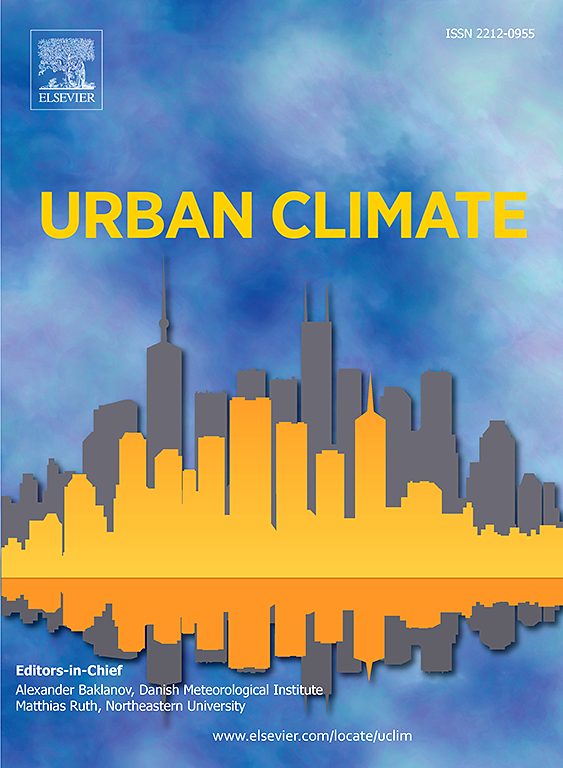了解纽约市老年亚裔社区的热暴露风险和适应行为
IF 6.9
2区 工程技术
Q1 ENVIRONMENTAL SCIENCES
引用次数: 0
摘要
极端高温暴露是城市气候相关疾病和死亡的主要原因,低收入老年人尤其容易受到伤害。虽然室外空气温度是个体热暴露的关键决定因素,但对于个人属性、建筑环境和适应性行为如何影响低收入老年人的个人热暴露,人们的理解有限。从2023年8月至9月,我们招募了45名居住在纽约市的亚洲老年人,研究了热风险感知、气候变化知识、家庭适应行为以及人口和社会经济因素对个体热暴露的影响。参与者的平均年龄为74.8岁(63-89岁),面临经济挑战,64%的人报告家庭年收入低于4万美元。有限的财政资源,包括低年收入和固定的退休收入,可能导致家中空调的使用率较低。研究结果还显示,个人的热暴露量超过了环境热暴露量,尤其是在夜间。年龄和室外空气温度是增加个人热暴露的重要因素,而强适应行为有助于减轻暴露。这项试点研究强调需要有针对性的策略来减少这一人群的个人热暴露和脆弱性。努力应侧重于增加可负担的制冷选择,扩大能源援助计划,并通过社区外展和教育促进适应性行为。本文章由计算机程序翻译,如有差异,请以英文原文为准。
Understanding heat exposure risks and adaptation behaviors among elderly Asian communities in New York City
Extreme heat exposure is a leading cause of climate-related illness and death in cities, with low-income older adults being particularly vulnerable. While outdoor air temperature is a key determinant of individual heat exposure, there is limited understanding of how personal attributes, the built environment, and adaptive behaviors influence personal heat exposure among low-income elderly individuals. From August to September 2023, we recruited 45 older Asian adults living in New York City to examine the impact of heat risk perception, climate change knowledge, home adaptation behaviors, and demographic and socioeconomic factors on individual heat exposure. Participants had an average age of 74.8 years (range: 63–89) and faced economic challenges, with 64 % reporting an annual household income below USD 40,000. Limited financial resources, including low annual incomes and fixed retirement incomes, may contribute to the low use of air conditioning for cooling at home. The results also showed that personal heat exposure exceeded ambient heat exposure, particularly during nighttime. Age and outdoor air temperature were significant factors that increased personal heat exposure, while strong adaptive behaviors helped mitigate exposure. This pilot study underscores the need for targeted strategies to reduce personal heat exposure and vulnerability among this population. Efforts should focus on increasing access to affordable cooling options, expanding energy assistance programs, and promoting adaptive behaviors through community outreach and education.
求助全文
通过发布文献求助,成功后即可免费获取论文全文。
去求助
来源期刊

Urban Climate
Social Sciences-Urban Studies
CiteScore
9.70
自引率
9.40%
发文量
286
期刊介绍:
Urban Climate serves the scientific and decision making communities with the publication of research on theory, science and applications relevant to understanding urban climatic conditions and change in relation to their geography and to demographic, socioeconomic, institutional, technological and environmental dynamics and global change. Targeted towards both disciplinary and interdisciplinary audiences, this journal publishes original research papers, comprehensive review articles, book reviews, and short communications on topics including, but not limited to, the following:
Urban meteorology and climate[...]
Urban environmental pollution[...]
Adaptation to global change[...]
Urban economic and social issues[...]
Research Approaches[...]
 求助内容:
求助内容: 应助结果提醒方式:
应助结果提醒方式:


